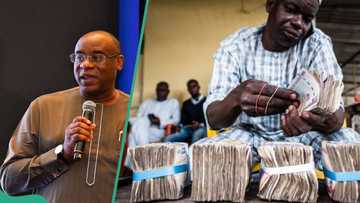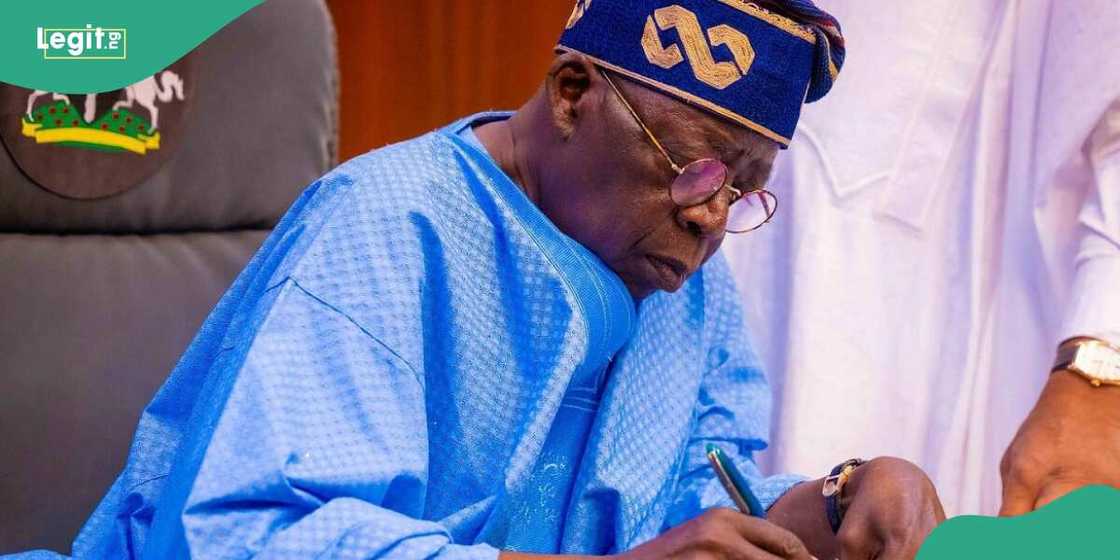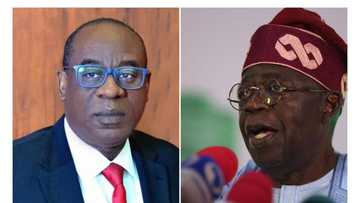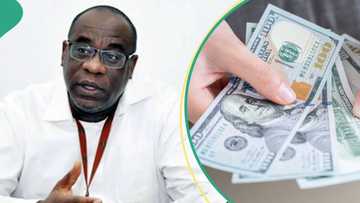Amid N82 Trillion Debt Stock, World Bank Delays $8.6 Billion Loan to Nigeria
- World Bank report shows that as of July 2023, the bank still had not paid out $8.6 billion loan to Nigeria
- This includes loans from the International Bank for Reconstruction and Development as well as the International Development Association
- There are indications that the unpaid loan could lead to a 66.27% rise in Nigeria's debt to the lending organization
Unlock the best of Legit.ng on Pinterest! Subscribe now and get your daily inspiration!
As of July 2023, Nigeria has a total of $8.6 billion unpaid World Bank loan, according to information from the World Bank website's Summary Statement of Loans, Credit, and Grants.
The undisbursed loans included $1.12 billion from the International Bank for Reconstruction and Development (IBRD) and $7.45 billion from the International Development Association (IDA), according to a breakdown by Punch.
Recall that Legit.ng earlier reported that Nigeria’s public debt has risen to N82 trillion from N77 trillion before the Central Bank of Nigeria (CBN) exchange rate unification was announced on Wednesday, June 14, 2023.

Read also
“Too cheap": CBN names BDC operator selling dollars below N700/$, begins manhunt for others

Source: UGC
The World Bank Group, however, cautioned Nigeria to cut back on its borrowing from the Central Bank of Nigeria if it wants to lessen the burden of inflation on the economy.
PAY ATTENTION: Сheck out news that is picked exactly for YOU ➡️ find the “Recommended for you” block on the home page and enjoy!
Loans from World Bank's IBRD and IDA
The signed loan commitments as well as the approved but unsigned loans are included in the undisbursed loans. Loans have been advanced to Nigeria by the World Bank's IBRD and IDA over the years.
While the IDA offers grants and concessionary loans to governments of the world's poorest nations, the IBRD lends to governments of middle-income and creditworthy low-income nations.
Previous report stated that Nigeria's debt to the World Bank could increase from $12.72 billion to $21.15 billion as a result of unpaid loans.

Read also
N23 trillion loan: FG reveals it costs more to borrow from CBN than China, IMF, World Bank, others
It demonstrated that the unpaid loans could result in a 66.27 percent rise in Nigeria's debt to the lending organisation.
According to the World Bank's audited financial accounts for the fiscal year 2022, which indicated that as of June 30, 2022, the bank still had not paid out $8.12 billion to Nigeria, this was the case.
The bank stated in its 2022 statements that the signed loan commitments and other loans that have not yet been released because some things are not in place. It stated:
Loans are not effective and disbursements do not start until the borrowers and/or guarantors take certain actions and furnish documents.
According to information from the Debt Management Office, Nigeria still owes the World Bank $14.33 billion as of March 31, 2023.
A breakdown of the DMO's foreign debt report revealed that Nigeria received a $13.84 billion IDA loan and a $488.35 million loan.
Meanwhile, Legit.ng in a report stated that federal government paid $1.17 billion to service foreign debt commitments in the first half of 2023.
With the withdrawal of the petrol subsidy and the harmonisation of exchange rates, the Federal Government recently declared that it has no intention of borrowing from either domestic or foreign organisations.
This was made known by Wale Edun, Minister of Finance and Coordinating Minister for the Economy, at the conclusion of the first Federal Executive Council meeting in Abuja.
Edun, however, confirmed, that the Federal Government will continue with the loan obligation agreed in the 2023 budget during a press event on Friday.
The administration, however, wants to halt borrowing for ongoing expenses and instead focus on capital borrowing.
According to him, the government is unable to borrow due to rising debt-to-GDP ratios and a debt service to revenue ratio of 90%. He claims that there was a continuing borrowing demand included in the previous budget that was appropriated by the National Assembly.

Read also
GTCO, parent company of GTBank profit jumps by 217% to N340bn in 6 months, CEO explains performance
He said:
It is an indication of the commitment of the government to find other sources of funding rather than relying on borrowing and to bring down or even eliminate a certain type of borrowing as soon as possible. That type of borrowing is borrowing for recurrent as opposed to borrowing for capital expenditure, which has a return and which is self-financing.
Buhari’s Government Spent 85.37% of Its Revenue on Debt Servicing in February, Tinubu Inherits N77.8trn Debt
The Nigerian government spent over 85% of its revenue servicing debt in February 2023, Legit.ng had reported.
The Central Bank of Nigeria said in its monthly economic report for February that the federal government had a retained revenue of N478.57 billion in February.
The apex bank also stated that the Federal Government spent N408.5bn on debt servicing in the same month.
Source: Legit.ng


